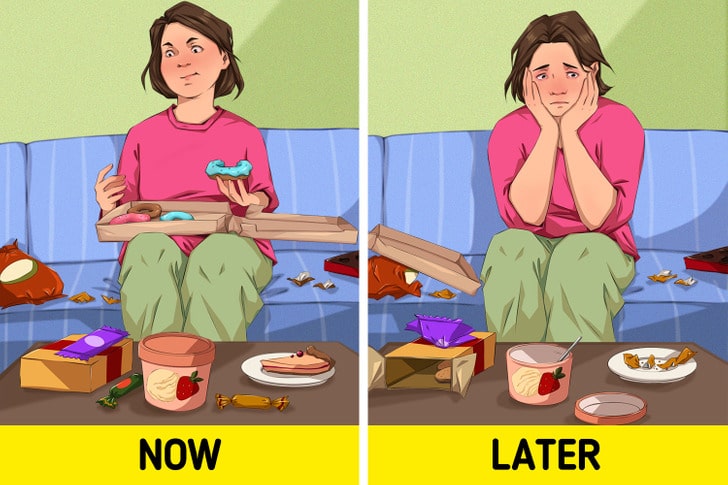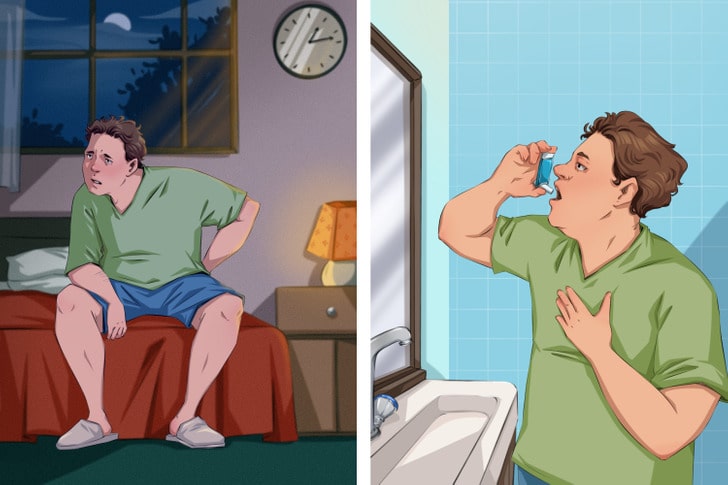Binge eating disorder (BED) is something that affects 2% of the world’s population. Most sufferers will binge eat for a few hours without thinking of the consequences. It’s not just about eating as much as possible, but for many sufferers, it involves covering up deeper psychological issues. It is a defense mechanism that can create a host of other problems.
It seems that it is important to know the bases of this disorder in order to identify and solve it. And you should visit a medical professional if you recognize signs of this disorder.
The symptoms of BED

You eat large amounts of food for a limited period of time, such as a 2-hour window. Eat even if you are not hungry enough to be extremely uncomfortable.
You eats at an extremely fast rate and often hide your feeding episodes from those around you. After your eating episodes, you feel guilty, ashamed, and depressed about what you just ate.
The risk factors
There are a few reasons someone might be dealing with this disorder.
Genetics: In many cases, the disorder is hereditary and has to do with dopamine. This is the chemical in our brains that is connected to reward and pleasure, and some people have a higher sensitivity to it.
Brain changes and gender: Yes, women are more susceptible to BED than men. In the US alone, 3.6% of women have it, compared to 2% of men. Additionally, those with the disorder appear to have altered brain structure and less self-control over what they eat.
Body image issues and obesity: People who overeat often have a very negative view of their bodies and in many cases are overweight.
Psychological problems: childhood traumas, phobias, depression or post-traumatic stress disorder can cause people to turn to food as a coping mechanism.
READ RELATED: San Antonio Is the Culture-filled Getaway You Never Knew You Needed
The health risks

Nearly 50% of people with BED are also obese, putting them at very high risk for a number of health problems. Diabetes, sleep problems, chronic pain, asthma, and irritable bowel syndrome are some of the more common problems.
Due to these factors, they are more likely to end up in a health facility for treatment. Additionally, people with BED have reported problems with social interactions.
Ways to prevent it
Preventing binge eating disorder isn’t really possible, but there is a way to tackle it early on. If you notice any of the symptoms mentioned above, you can see your doctor for advice and treatment options.
If you have a child and notice from the beginning that their relationship with food is not healthy, you should talk to a specialist doctor. Treating the problem early will help you and your child identify and treat it.
Treatment options
Cognitive behavioral therapy: If your binge eating stems from repressed issues, you’ll need to address those issues first, then determine your food intake. You will need to regulate your negative feelings and regain control in order to limit your food intake.
Dialectical Behavioral Therapy: With this method, you will learn to better tolerate stress and improve your relationships with others. If these are the reasons that lead you to binge, you will see that there is a healthy way to solve the problems.
Medications: This might be the last thing you want to try, but there have been cases where medications have reduced binge eating episodes. However, they may not be successful with weight loss. In any case, you should always consult your doctor and make sure you are under their supervision.
What is your relationship with food? Do you know someone who has an unhealthy back and forth with her?
Source: crfatsides










